Matt Smith is punk
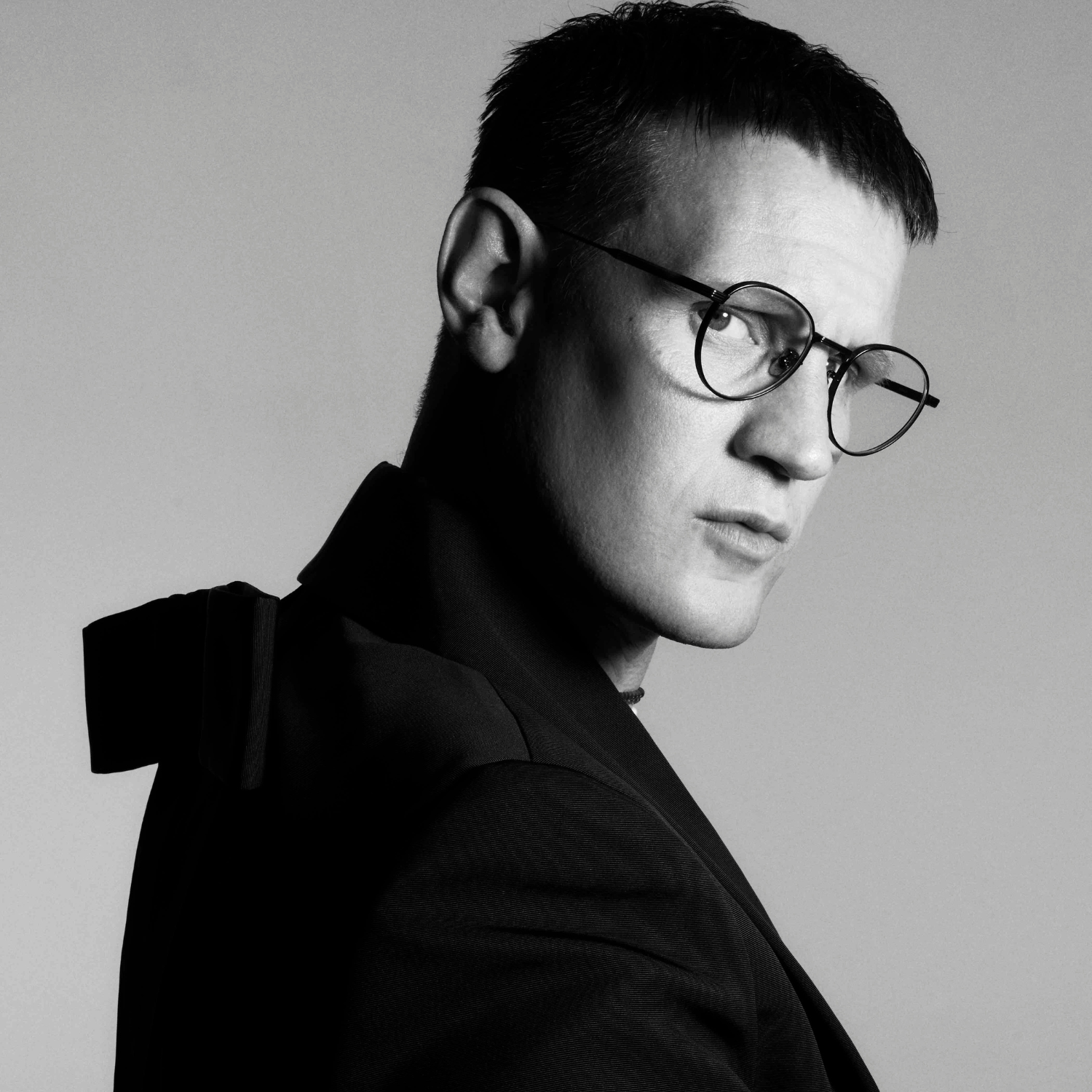
For many celebrities being in public is a game of camouflage. As they walk the streets, they don sunglasses, hoods, baggy outfits — disguises designed to retain as much privacy as they can hold onto. But if you happened to be in New York in the autumn of 2024, you might have seen one celebrity completely on show to the world — Matt Smith, sporting a foot-high mohawk dyed in red, orange and yellow. “What’s interesting is that it sort of allows you to walk around and go more unnoticed in a way, because people are less inclined to approach you somehow,” Smith says on our Zoom call. As he bounces between stories, he remembers it did draw attention from a different crowd though. “I’d have my full mohawk — we’d be in the Lower East Side or the East Village or wherever — and dogs would bark at me, consistently. And in America they ain’t got rules on dogs. There’s some big, gnarly motherfuckers out there.”
Smith’s hair wasn’t a result of an ill-advised trip to the barber, but his upcoming role in Darren Aronofsky’s Caught Stealing where he plays Russ, an archetypal punk. Complete with studded leather jackets, tartan trousers, a pair of Dr Marten’s and a bobblehead of a zombie Margaret Thatcher attached to the dashboard of his car, Russ finds himself solidly embroiled in the underbelly of New York’s crime scene. “There was just something I quite liked about him,” Smith smiles wryly. As he prepared for his transformation into Russ, Smith trawled New York’s punk shops with the film’s production team and read a history of the movement — but there was one instruction that really shifted his thinking. “One of Darren [Aronofsky]’s notes was ‘I give you permission to be a punk’, and I just thought, wow, what an amazing piece of advice.”
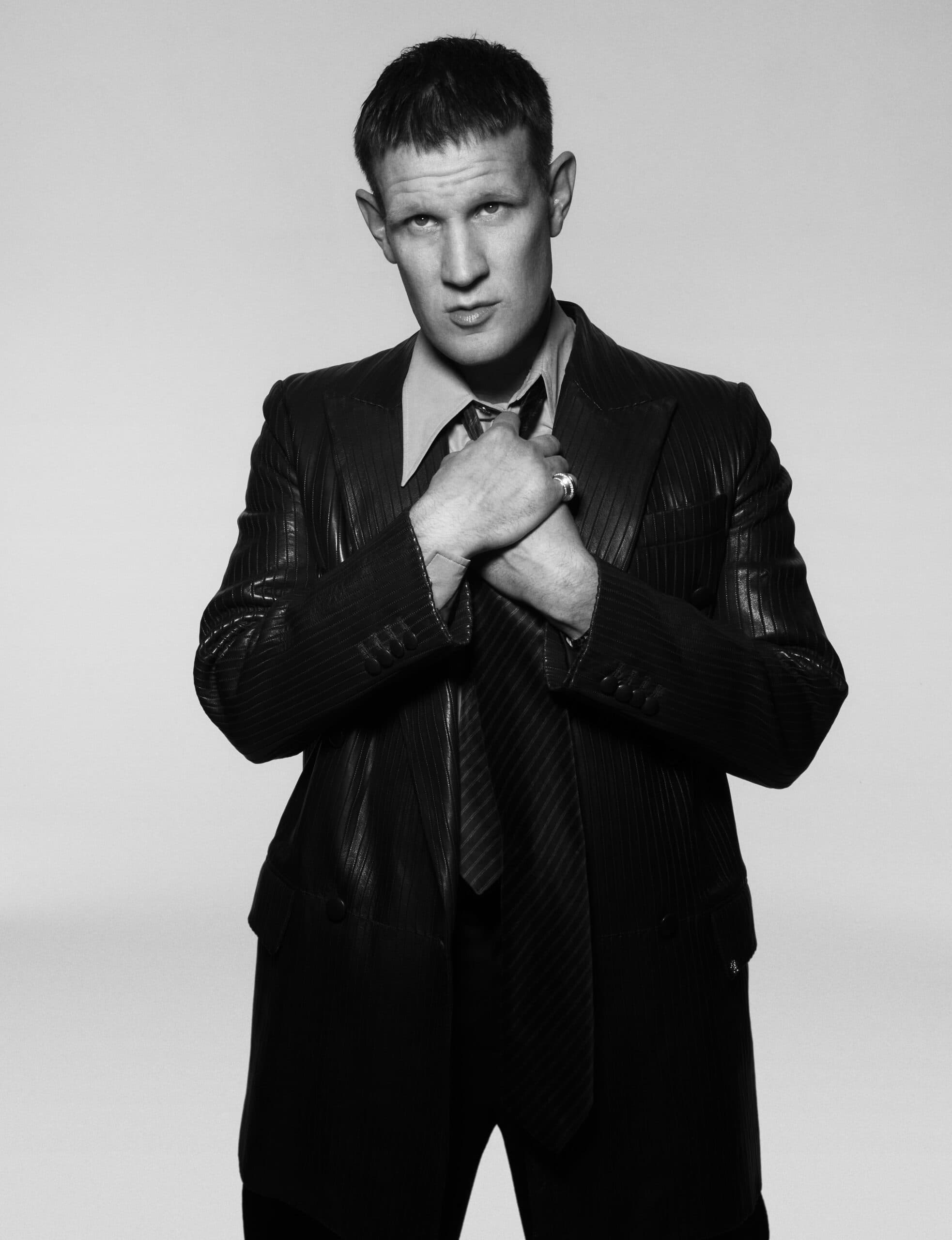
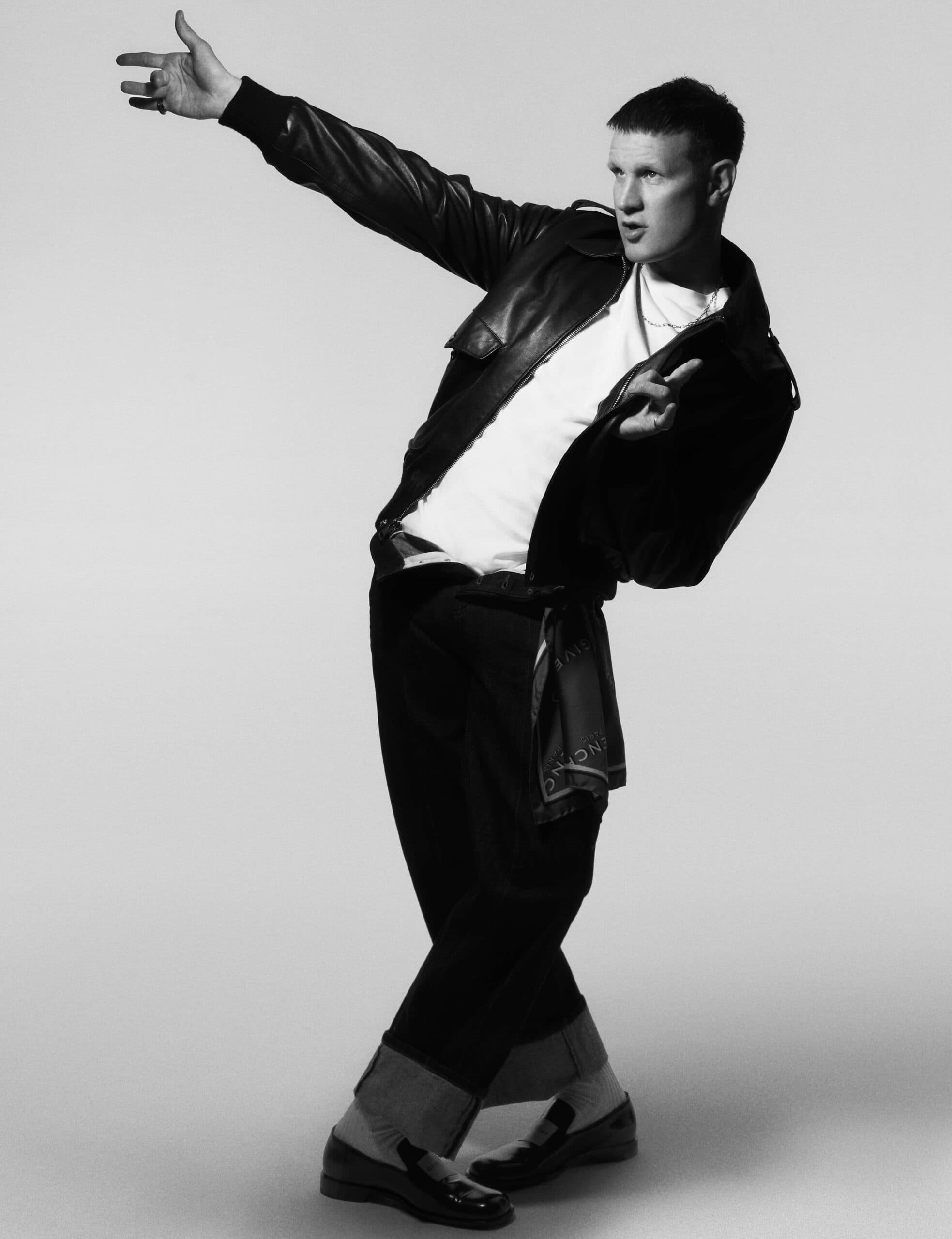
Throughout his career, Smith’s been known for his exuberance. He first entered the public eye when he took on the role of Doctor Who at the age of twenty-six, the youngest actor to shoulder the mantle. From the moment he premiered, Smith became known for the vigour with which he attacked roles, bounding through scenes with wild articulations and grand gestures. Energetically, his style of acting feels like it breaks the rules of mumblecore minimalism that have invaded cinema. It’s this that makes me ask the question: “Are you a punk?” Before he answers, Smith stumbles, confessing that — despite doing exactly this for a career — training the lens back on himself isn’t something he finds easy. After a moment, he lands on an answer. “I don’t know if many actors are punks, believe you me. They might pretend to be, but deep down they’re like — we’re fucking like — Is that okay? Should I do it again but different? Was that good enough? There’s a lot of needing validation there.”
To think about himself, not actors en masse, Smith starts to get philosophical — and so he decides to tackle the question in a different way, by first answering: “What is punk?” The initial idea that he lands upon is perspective, “It’s an attitude as opposed to an image,” he says. “I think you can be punk and not have a skinhead. And it’s not necessarily about saying ‘fuck the system’, it’s just about you deciding that there’s your own system. It’s amazing when you see it in kids and you think, You’re such a little punk, you’re doing it your own way.” As Smith tries to define that punk attitude, he talks about the goths from his hometown of Northampton who used to congregate at a record shop called Spinadisk — dressed head to toe in black, replete with dark eyeliner. Dressing like that in Northampton came with its fair share of mockery, Smith emphasises, but it never deterred them. “They didn’t give a fuck,” he remembers. “And I was always kind of into them. I thought, You lot look cool, man.”

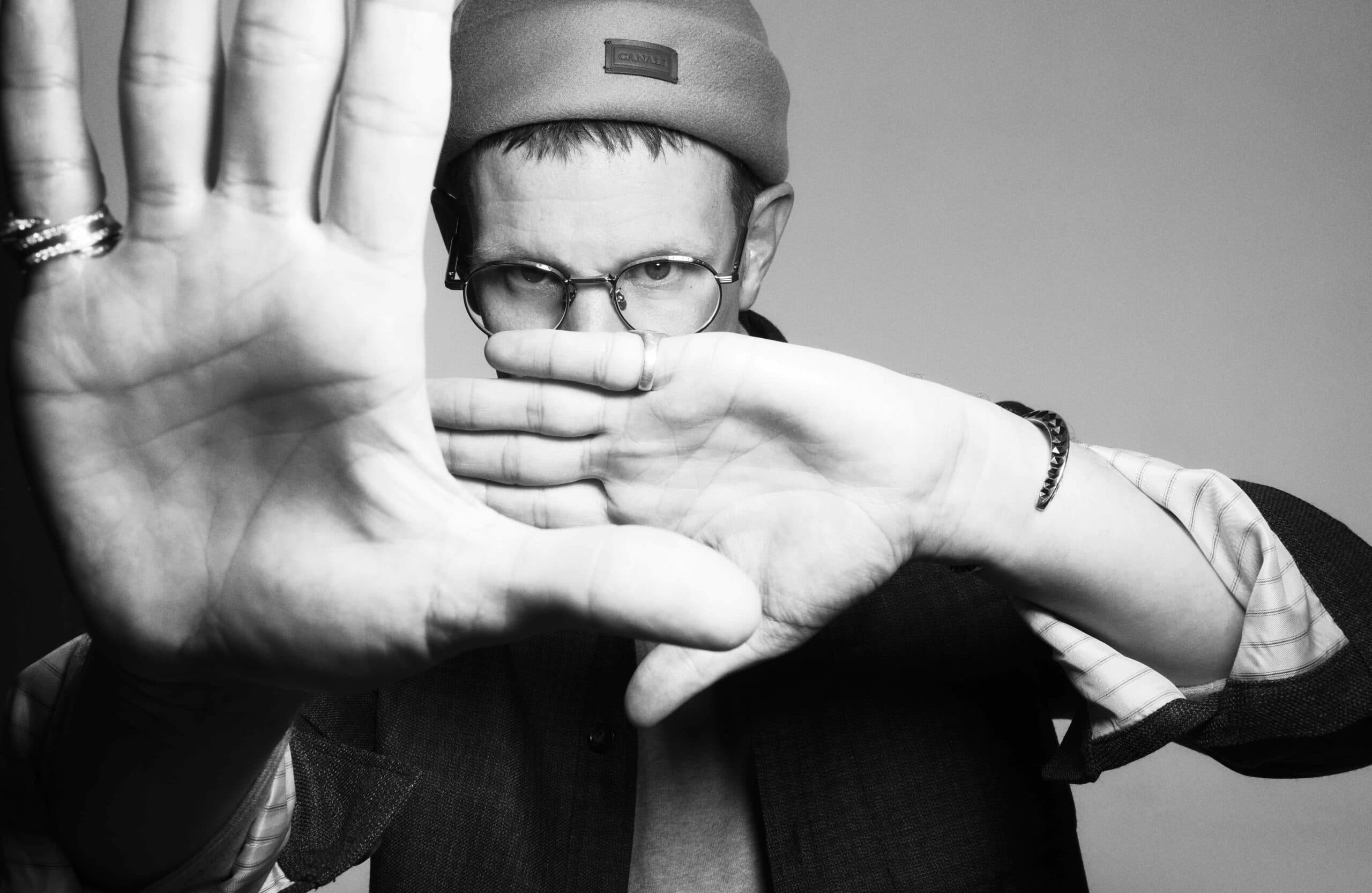
For Smith, though, no one exemplifies the punk attitude more than the poet of punk himself, John Cooper Clarke. Smith, as I grow to learn, is an avid reader of poetry and over the course of our call quotes everything from T.S. Eliot’s ‘The Lovesong of J. Alfred Prufrock’ (“I grow old, I grow old, I shall wear the bottoms of my trousers rolled, till I part my hair behind”) to Charles Bukowski’s Come On In! (“come sit with me in the dark. it’s half-past nowhere everywhere”) — all from memory. But as we talk about Cooper Clarke, Smith’s face lights up with the energy of a kid who’s been given permission to swear, and he bursts into Cooper Clarke’s signature Salfordian drawl: “You put the shat in shatter. Put the pain in Spain,” lines from the poem ‘Twat’, which Smith gave to Aronofsky as a reference point for his portrayal of Russ. “Lyrically, he’s a fucking genius and a menace. The observations about people and modern life — he makes them reflective and accessible and universal all at the same time, whilst making it totally concise and poetic. And that is really hard to do.”
As Smith reflects on Cooper Clarke, he speaks to an energy that seems to want to escape from the formal confines of poetry — a sentiment that carries through to the actors he loves. “I do think that maximalist approach can have an economy to it as well,” he says. “I like [Jack] Nicholson, because he’s sort of… big, you know? He doesn’t make small choices, he makes quite big ones.” Smith himself has not shied away from making big choices either — in his work, but also in his personal life. Growing up, Smith had been on track for a football career, playing for Northampton Town, Nottingham Forest and Leicester City’s youth teams. After a back injury left him unable to play, he switched to acting. When I consider the switch — from the confident assuredness of a footballer to the vulnerability of an actor — it seems that the two paths feel almost diametrically opposed, but Smith immediately corrects me: “They used to call Old Trafford [Manchester United’s football stadium] ‘The Theatre of Dreams’, you know?” Smith says. “They fucking don’t anymore, do they?” He laughs, “It’s not The Theatre of Fucking Dreams now, is it? But when [Eric] Cantona was in there, putting his shirt collar on, there was a sense of theatre about it.”
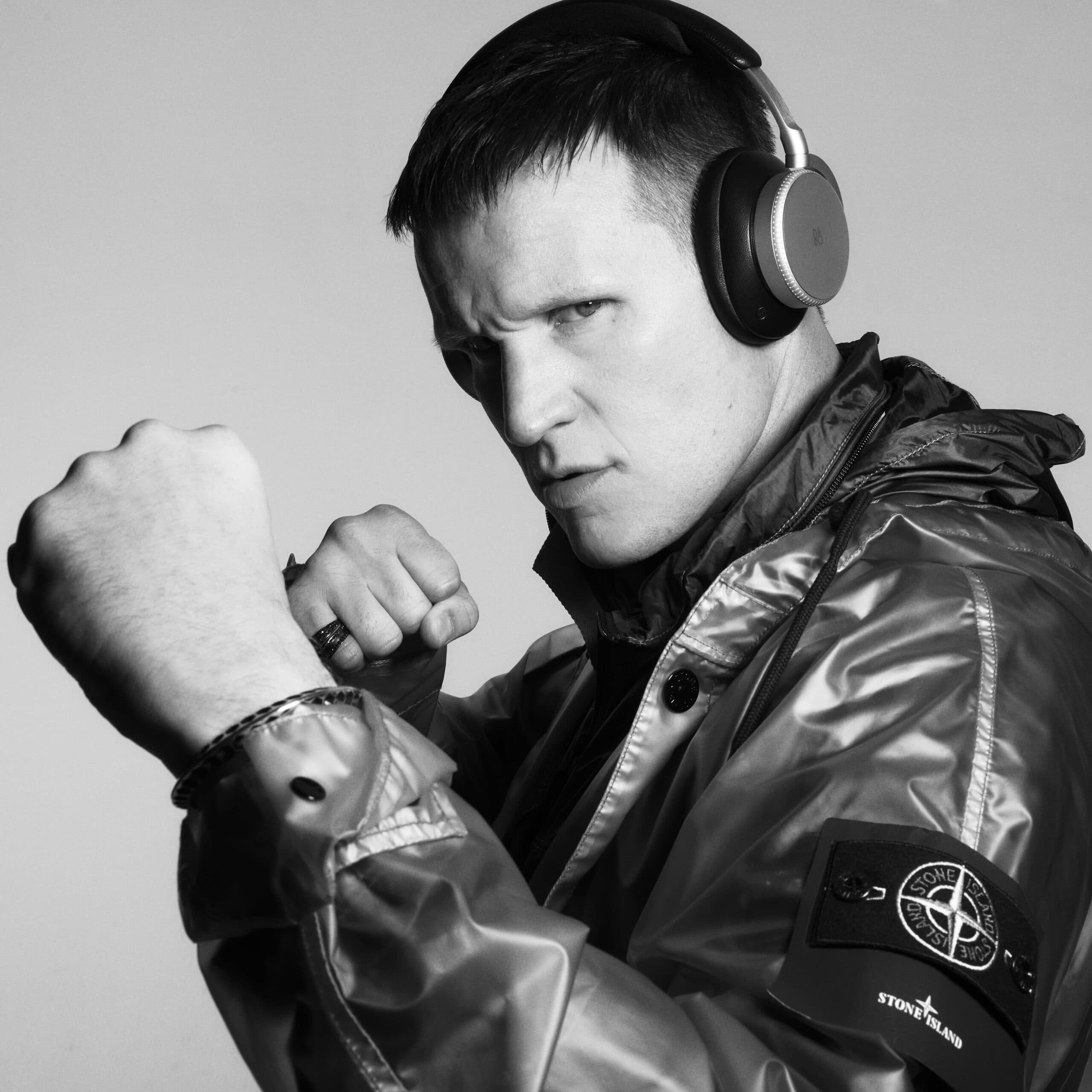
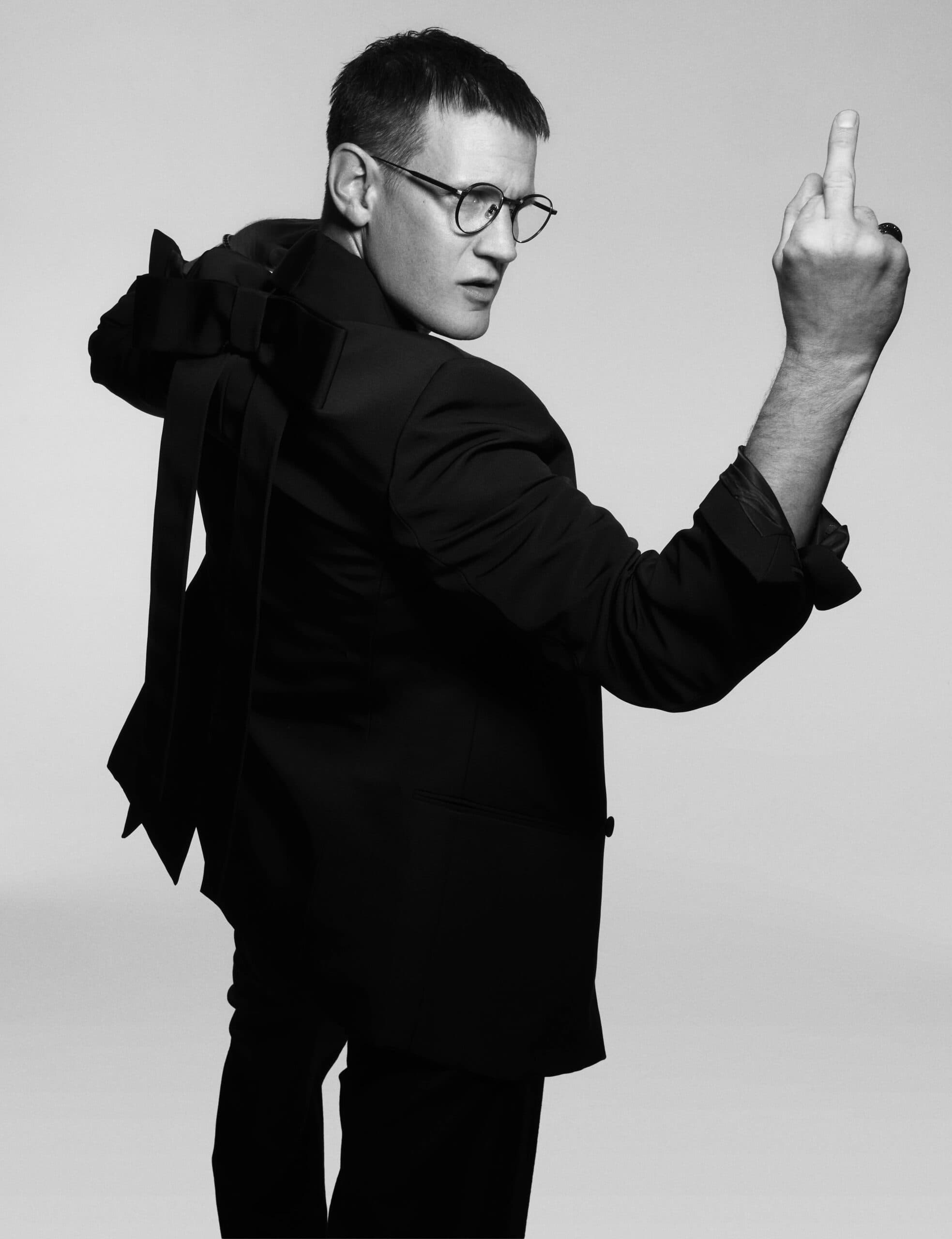
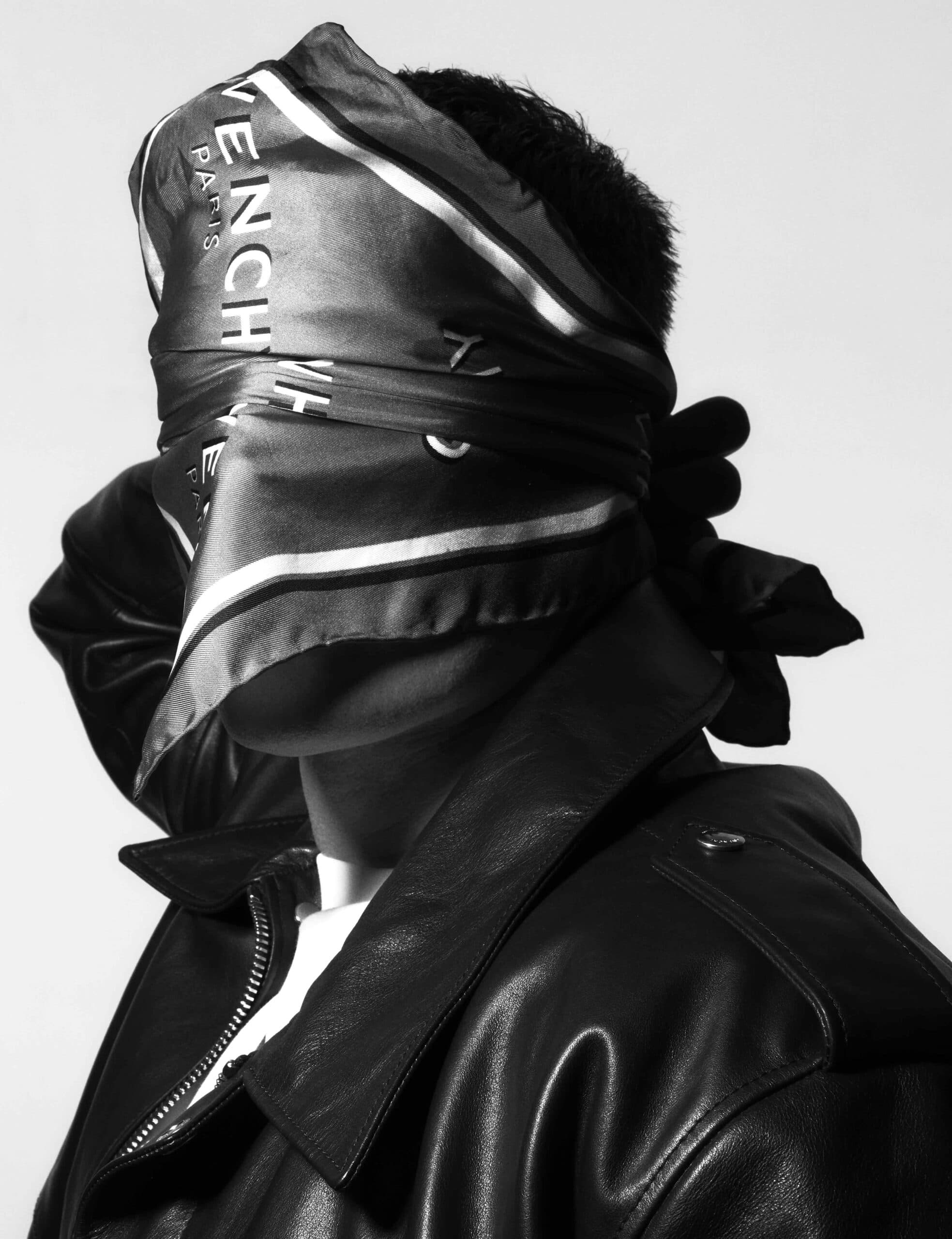
While his dreams of being a footballer may have been cast aside, one of the things that Smith credits to a youth spent training is discipline — and as he considers that commitment, he lands on another idea for what it means to be punk. “People think punks just don’t give a fuck, but being a punk is a lot of upkeep,” Smith exclaims. “Back in the day, they used to fucking glue their hair and iron it to keep it up. You can’t go to sleep like that! There’s a real thought behind it, a deliberate choice in the doing of it — a sacrifice.” For Smith, football provided a structure through which he honed his discipline, but he traces its genesis back to his dad — a consummate Northerner — who would tell him, Get up, gerron on with it, crack on. If Smith ever wavered, he knew he had his dad to provide a grounding perspective. “Even when I’d come back and moan about different jobs, he’d go, Look, this is work, it’s not always meant to be fun.”
Smith might not, then, have the ‘do it however you want, always’ attitude of his home-town goths or his Caught Stealing persona, but the anarchic element of determination? He has that covered. “I’m a punk when it comes to Blackburn Rovers, I’m punk about Oasis, I’m punk about my fucking dog,” Smith says, “I’m a punk about certain things in my life that I love, and I care about and I truly believe in, and I’m rigid about them being the best.” The force with which he attacks his roles undeniably displays the same fervour. But, I’m curious to know if the maximalist energy is a choice, or something inherent. “There’s a definite trend in minimalism on screen — and maybe that’s just what people are good at, and maybe I’m just not very good at that.” Smith says. “Some people are good at running, some people are good at jumping — and not everyone does both at the Olympics.” And Smith? Which one is he? “I don’t fucking know, mate,” he concludes. “I’m good at sitting down and ordering a pint of Guinness and watching the telly, I think. I’m just trying to get the lines in the right order.”
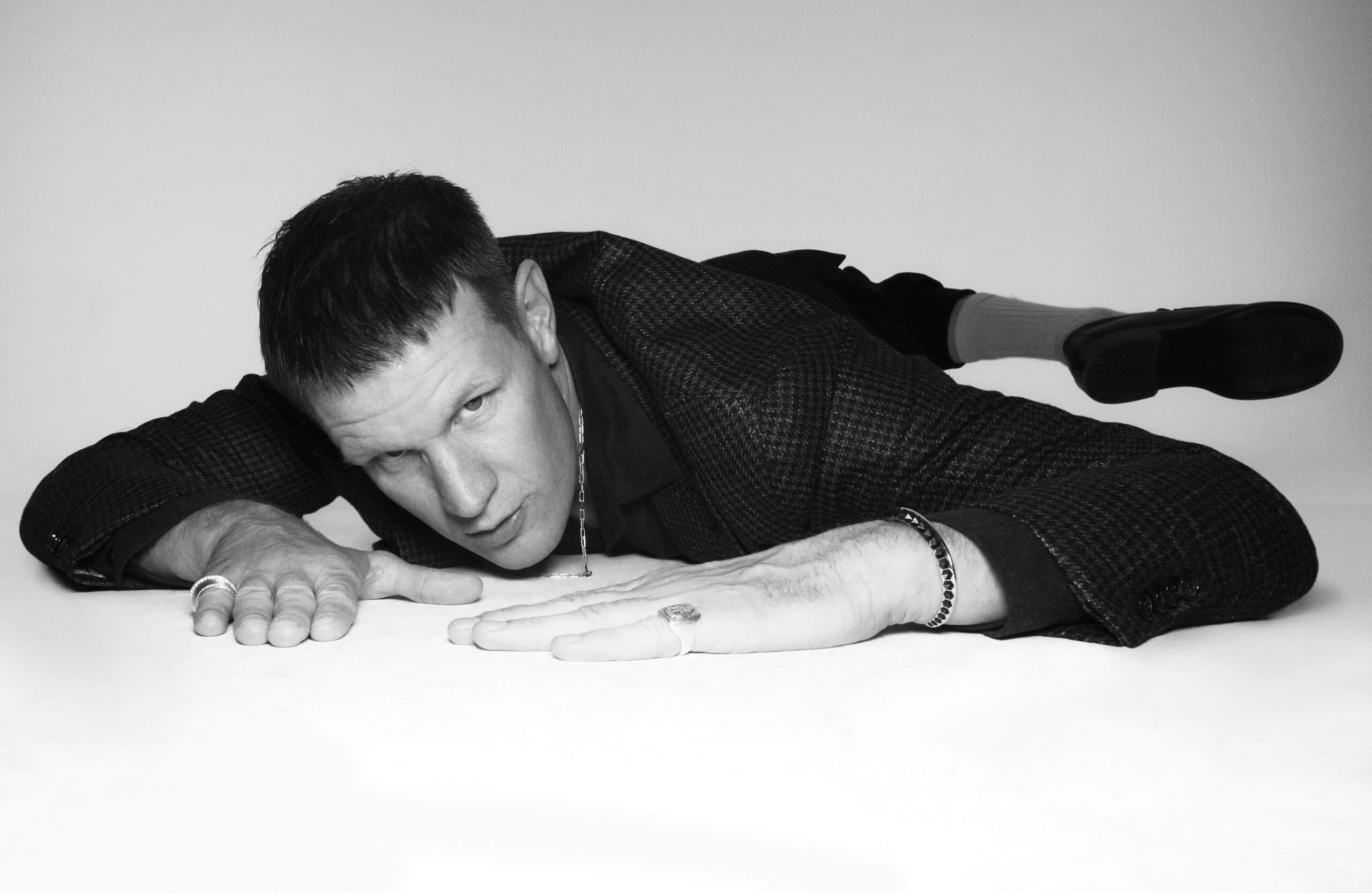
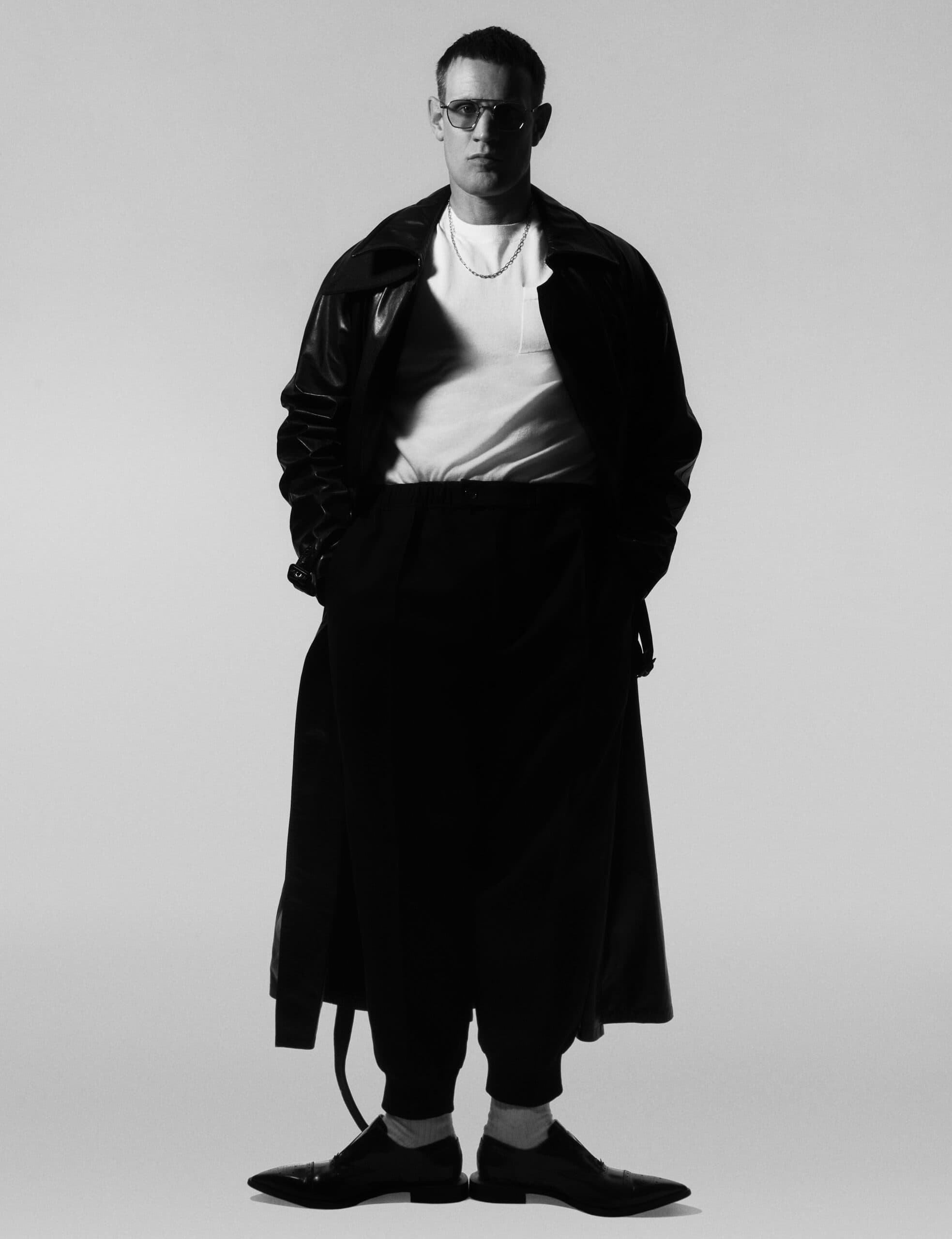
- PhotographerRankin
- Fashion and Beauty DirectorMarco Antonio using NO.1 DE CHANEL SERUM-IN-MIST and BODY SERUM-IN-MIST
- WriterRob Corsini
- GroomerLarry King at A-Frame Agency using LARRY KING HAIRCARE
- RetoucherAlice Constance




